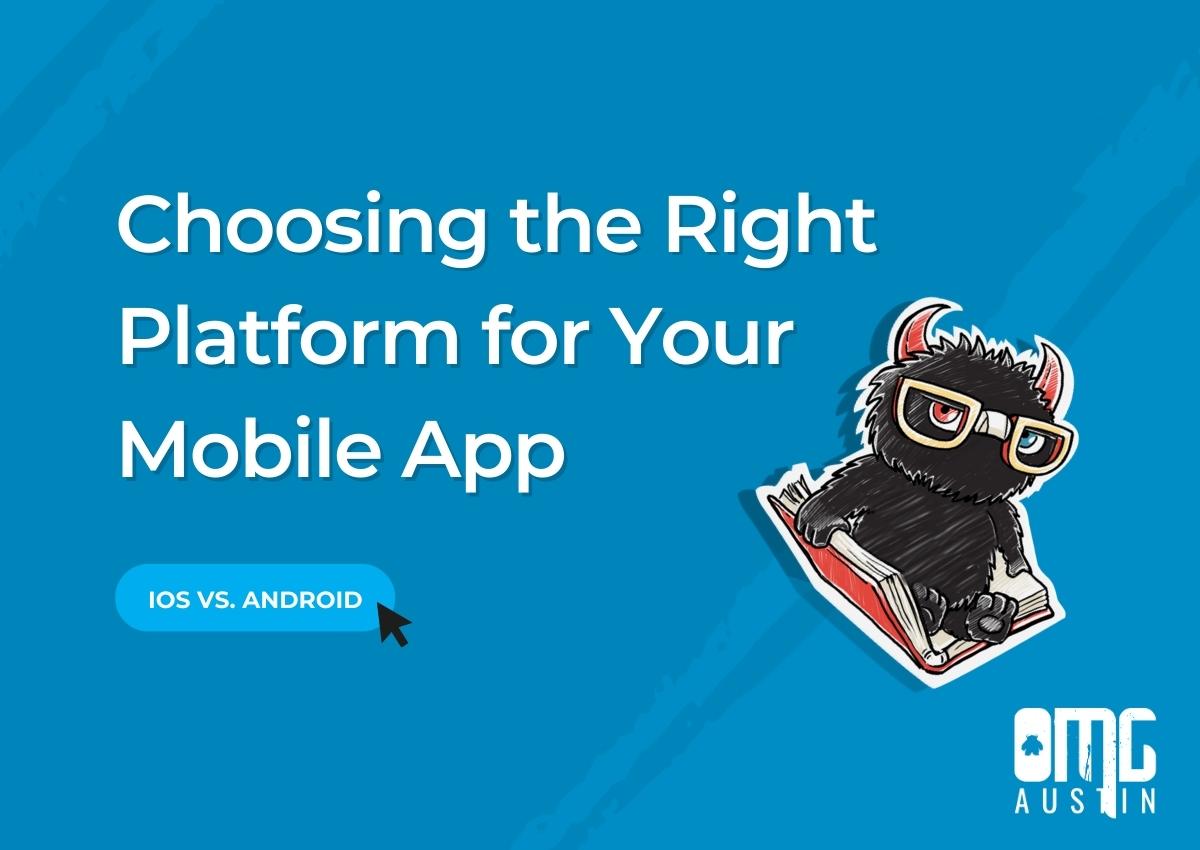Choosing the Right Platform for Your Mobile App: iOS vs. Android
 https://www.omahamediagroup.com/images/uploads/monster_gallery/Omaha-Media-Group-Black.jpg
https://www.omahamediagroup.com/images/uploads/monster_gallery/Omaha-Media-Group-Black.jpg

Mobile apps have become an integral part of a company's digital presence when it comes to connecting with consumers. People prefer downloading an app rather than using a mobile site. A report found that 57% of shoppers prefer mobile apps to other channels.
When it comes to developing a mobile app, there are a few things to consider. For one, who will build it, will you hire a mobile app development Austin company? The second thing to ask yourself is what kind of app you will be building, an iOS or Android app?
Each platform has its own strengths, user base and characteristics, making the decision a pivotal one that can significantly impact your app's success. Our mobile app development Austin company wants to delve into the key considerations when choosing between iOS and Android.
Choosing the right platform for your mobile app
User base and market share
Before you dive into building a mobile app, you need to understand your target audience and their preferences. This is crucial in order to make an informed decision about the app you should develop. iOS and Android users have different preferences. First off, iOS users are perceived to have higher disposable incomes and greater spending on apps, making it an attractive market for monetization. On the other hand, Android boasts a larger global market share and is particularly dominant in emerging markets.
Development complexity
The next thing to consider is the complexity of developing your app. The process of developing an iOS app is much more streamlined and standardized than an Android app. The reason is because there are fewer device models to cater to. Developing an Android app is a little more complex. Android apps have a diverse range of device screen sizes and demand greater testing and optimization efforts. If time-to-market is crucial, iOS development might be more efficient due to its controlled environment.
Programming languages and tools:
iOS app development primarily uses Swift or Objective-C, both of which are exclusive to Apple's platform. Android, on the other hand, offers flexibility with languages like Java and Kotlin. If your development team is proficient in a particular programming language, it might influence your platform choice. Additionally, consider the development tools and resources available for each platform, as they can impact efficiency and code quality. Another solution is hiring a mobile app development Austin company to build you both of those apps.
App monetization and revenue
Are you considering charging a download fee or a monthly subscription? Then, building an iOS app may be the way to go. As stated above, the iOS user tends to spend more on apps and in-app purchases compared to Android users. However, Android's larger user base might still result in higher overall revenue if your app's business model thrives on advertisements or freemium models.
Distribution and app stores
Once the app has been developed by a mobile app development Austin company, it is time to publish it on app stores. There are a few things to consider when uploading on a store. iOS apps are distributed through the Apple App Store, which has a rigorous review process that ensures app quality and security. Android apps published through the Google Play Store can be distributed through the Google Play Store, as well as third-party stores, providing greater flexibility.
Develop your next iOS or Android app with our mobile development Austin services!
The choice between iOS and Android for your mobile app depends on a multitude of factors, including the range of your target audience and the app's purpose. Talk to a mobile app developer to help you decide which app is best for your business or to help you develop both. Contact us to get started!
Posted In: Mobile Applications
